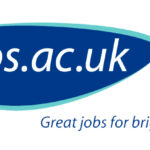Machine Learning Potentials for Strength Studies in Hexagonal Close Packed Materials at University of Warwick
Job Description
Supervisors:
Supervisors: Dr. Albert Bartok-Partay (Physics), Prof. James Kermode (Engineering), Dr Livia Bartok-Partay (Chemistry)
Summary:
In high-performance applications such as aerospace and medical technologies, there is a high demand for specialised materials with high strength-to-weight ratio and superior corrosion resistance. The reliability and improved development of these materials hinges on our atomic-level understanding on how they behave under stress or strain, and how defects in their crystalline structure affect their performance under different temperature-pressure conditions.
This PhD project will take advantage of recent developments in machine learning methods, to enable computer modelling of the mechanical behaviour of titanium alloys to produce a machine learning-based interatomic potential and reference database, as well as to assess its performance in strengths applications.
The rapidly developing research area of machine-learning (ML) interatomic potentials has enabled a step change in our abilities to model materials on the atomistic scale, emerging as a computationally cost-effective and accurate solution to describe materials properties. These enable us to gain accurate insights into materials properties far beyond the length-scales accessible to first-principles density functional theory (DFT), allowing us to simulate extensive defect structures and large-scale shock simulations while retaining high accuracy.
This project aligns with AWE’s work on developing precise ML potentials, focusing on modelling strength behaviour in hexagonal close-packed (hcp) phase metals and alloys such as the high-performance titanium-aluminium-vanadium alloy also known as Ti64. The complex low-symmetry crystal structure of these materials leads to a fascinating interplay between twinning and dislocation-mediated deformation, that is not fully understood yet. Atomistic simulations will be crucial for understanding the effects of strain rate, temperature and pressure on their plastic behaviour.
This PhD proposal would ideally suit a student who was interested in machine learning techniques as well as developing novel tools and software for studying materials properties. The student will benefit from the extensive expertise of machine learnt potentials and stress simulations within the supervisory team and research groups.
About the CDT:
HetSys is an EPSRC-supported Centre for Doctoral Training. It recruits enthusiastic students from across physical sciences, mathematics and engineering who enjoy using their mathematical skills and thinking flexibly to solve complex problems. By developing these skills HetSys trains people to challenge current state-of-the-art in computational modelling of heterogeneous, ‘real world’ systems across a range of research themes such as nanoscale devices, new catalysts, superalloys, smart fluids, space plasmas etc. They have recently been awarded £11m to train PhD cohorts in computation modelling.
HetSys is built around a closely knit, highly collaborative team of academics from five science departments at Warwick with a strong track record in leading large projects. With its project partners HetSys develops talented PhD students to push boundaries in this exciting field. The students have the potential to inspire new ideas, approaches and innovation and become future leaders in developing new technologies. HetSys builds on Warwick’s cross-departmental scientific computing research community and the Warwick Centre for Predictive Modelling.
https://warwick.ac.uk/fac/sci/hetsys/themes/projectopportunities/
Previous applicants need not apply.
Additional Funding Information
Awards for UK residents pay a stipend to cover maintenance as well as paying the university fees and a research training support. The stipend is at the standard UKRI rate of £19,237 per year. We are not able to fund overseas students at his time.
For more details visit: https://warwick.ac.uk/fac/sci/hetsys/apply/funding/

